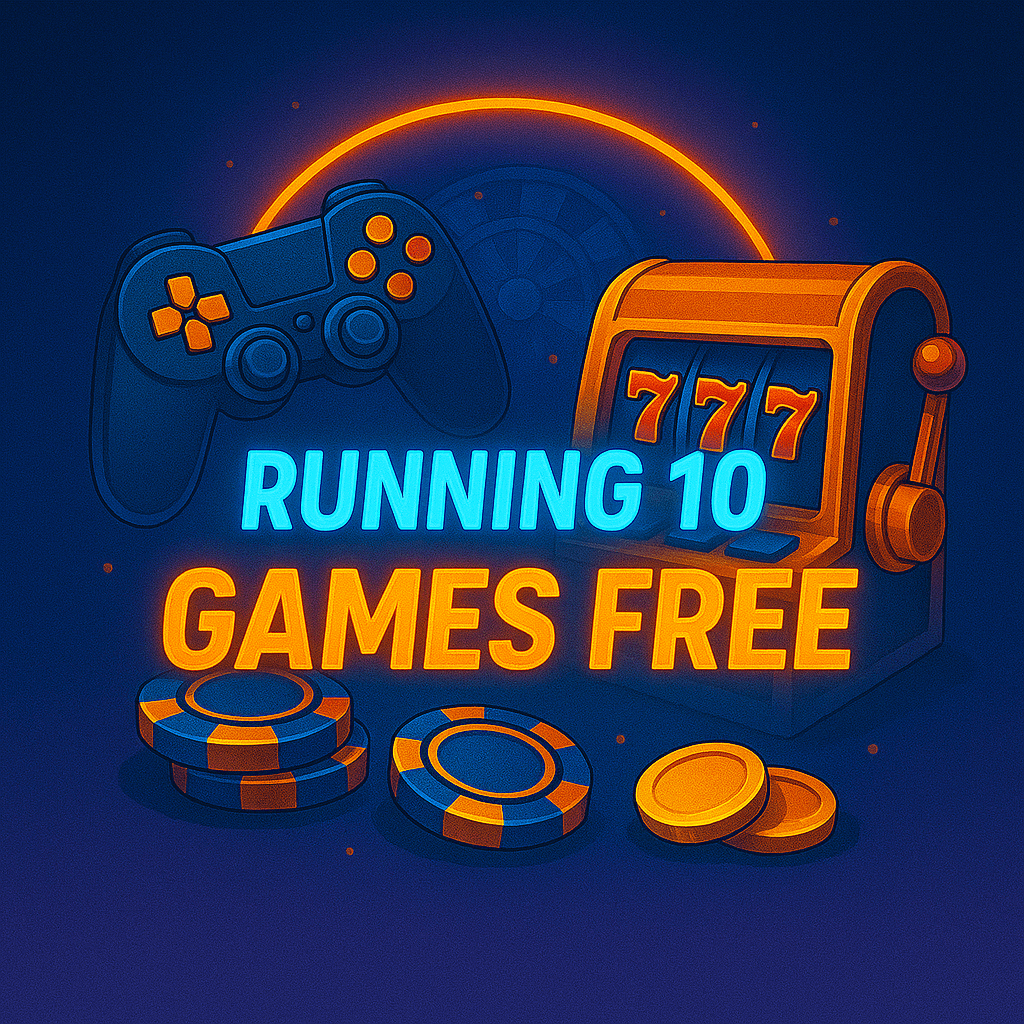Running 10 Games Free — Play Demo Modes with Clear Rules & No Cost
Welcome to the Free hub for Running 10 Games. Here you can explore demo-style experiences with no purchase required, learn how rules and measurement work, and practice reading a game card before you try other modes. This page explains what “free” means, how to start, how progress is shown, and how to troubleshoot common issues.
Running 10 publishes rules first, measures actions against those rules, and records results in an activity log. Free modes follow the same transparency standard while removing payment friction so you can focus on learning mechanics and pacing.

What “Free” Means Here
- Zero cost: you can launch and play without paying. No card or wallet is required for free modes.
- Demo focus: outcomes help you understand mechanics, not predict results elsewhere.
- Same clarity: each card lists eligibility, actions, measurement, window, caps, and settlement behavior.
- No promises: results are demonstrations tied to the written rule. They are not guarantees of outcomes in any other context.
How to Start Free Play
- Open the Free catalog and choose a game card that fits your time and attention today.
- Read the card top to bottom: eligibility → actions → measurement → window & cap → settlement.
- Launch the demo and complete the action exactly as written on the card.
- Check the tracker for confirmation. If a step didn’t qualify, the card shows a specific reason.
- Write a one-sentence debrief to capture what worked and what you’ll change next time.
Free Game Categories
- Quick rounds: short cycles ideal for learning pacing and reading results.
- Rule-heavy demos: longer cards with clear steps and examples of what does not count.
- Practice variants: the same mechanic with different caps or windows so you can compare strategies.
Start with quick rounds to nail the basics, then move to rule-heavy demos where careful reading prevents most mistakes.
Rules, Measurement & Fair Play
- Actions: stated in plain language with edge-case examples.
- Measurement: verified by specific signals (for example, completed round IDs).
- Window & cap: shown in your local time with a strict numeric maximum.
- Settlement: immediate or staged posting, described on the card.
When your action matches the rule inside the time window and within caps, the tracker updates and attaches timestamps to your activity log for auditing.
Practice Routine That Actually Works
- Pick one card and restate its rule in a single sentence.
- Set a 20–30 minute timer and complete one step at a time.
- Use the tracker—not memory—to confirm what counted and why.
- Stop at the cap and save your notes for the next session.
This routine builds clarity and reduces unforced errors, especially on rule-heavy cards.
Performance & Troubleshooting
Slow loads
Try a stable network, close background apps, and ensure your device time is set automatically for secure requests.
“Didn’t count” messages
Compare your step to the action and assumptions box. Most misses come from small edge cases explained on the card.
Visual glitches
Reload the card, clear cache, and disable overlays that might block system prompts. Older firmware and extensions can interfere with demos.
Frequently Asked Questions — Free
This single button continues with a helpful next step chosen for new players.